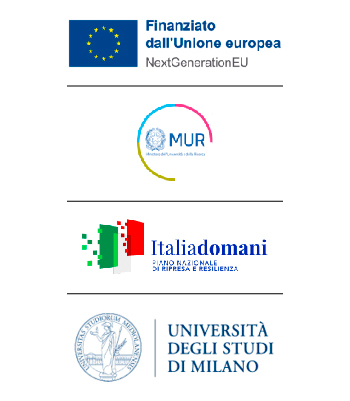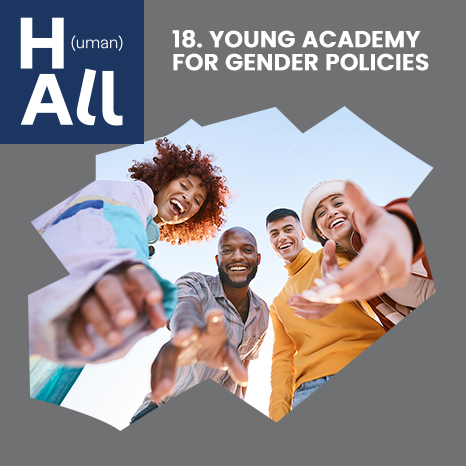INTEGRATION OF CHILDREN AND FAMILIES OF FOREIGN ORIGINs
How to protect unaccompanied minors? This is the focus of the project that, in collaboration with the associations and institutions already operating on the territory, focuses on the legal protection of unaccompanied minors and on family reunification.
There are three stages of development: examine how the international legislation is applied at national, regional, and local level identifying the deficiencies and staging tailored solutions; collect and spread good practices; promote training programs for the business operators, especially for the tutors of unaccompanied minors’ legal protection.
Finally, in collaboration with the coroners of the Università degli Studi di Milano, the project aims to investigate the issues related to the identification of young people asking for protection age, and the related consequences in terms of human rights. Moreover, the idea is to create more protective algorithms able to assess the minors’ age.
TEAM
THE PARTNER

From 14 years, Agevolando has been longing for a world in which Care leaver guys have the opportunity and the right to choose their own, autonomous pathway, realised in their own time and manner. That is why, from day one, the starting point has been their voice. Agevolando does not work for them, but with them.
WHAT DO WE DO
UNACCOMPANIED MINORS RIGHTS
Interview with Chiara Ragni,associate professor of International Law

The task has a very specific focus: unaccompanied minors of foreign origin…
The one of unaccompanied minors is a huge problem. Their integration is related to the acknowledgment of their legal status, which starts with the verification of the minor’s age, who frequently arrives in Italy without documents or with an invalid birth certificate. So, the recreation of the minor’s history registry is related to the application of laws able to protect the minors’ interests, as the International and European Law states.
Why is a legal analysis important for the minors’ integration?
Because thanks to it we can understand their situation, what we already have and what is missing. The law can help to define some guidelines about the acknowledgment of the minor’s age, their skills and the understanding of their certificates. Italy already has a legislation for unaccompanied minors, what is missing is the implementation of laws that follow consistent criteria.
Which are the weaknesses of the legislation?
The project starts from this question: moving from the interpretation of texts both on a national and international level, we aim to address the critical areas and the gaps. The second phase is a constructive and proactive one, suggesting actions that can fill the gaps identified in the first phase.
The task has a very specific focus: unaccompanied minors of foreign origin…
The one of unaccompanied minors is a huge problem. Their integration is related to the acknowledgment of their legal status, which starts with the verification of the minor’s age, who frequently arrives in Italy without documents or with an invalid birth certificate. So, the recreation of the minor’s history registry is related to the application of laws able to protect the minors’ interests, as the International and European Law states.
Why is a legal analysis important for the minors’ integration?
Because thanks to it we can understand their situation, what we already have and what is missing. The law can help to define some guidelines about the acknowledgment of the minor’s age, their skills and the understanding of their certificates. Italy already has a legislation for unaccompanied minors, what is missing is the implementation of laws that follow consistent criteria.
Which are the weaknesses of the legislation?
The project starts from this question: moving from the interpretation of texts both on a national and international level, we aim to address the critical areas and the gaps. The second phase is a constructive and proactive one, suggesting actions that can fill the gaps identified in the first phase.
Chiara Ragni, Monica Massari, Martina Buscemi, Daniele Mandrioli, Cristina Cattaneo, Lorenzo Franceschetti
SOCIAL SCIENCE TO UNDERSTAND THE EXTREME VULNERABILITY
SPEAKS MONICA MASSARI, ASSOCIATED PROFESSOR OF GENERAL SOCIOLOGY

The project “Integration of non-accompanied minors” collects transversal skills: juridical, sociological, forensic. Why does this theme require such a comprehensive approach?
We are facing not only a complex phenomenon, but also extremely vulnerable people who need great care. The data collected during the first months of 2023 are clear, showing how the number of foreign minors arrived in Italy without relatives (around 2000), almost triplicated compared to the same period of the last year. These are young boys and girls who are part of a more and more complex migratory phenomena, led by desperation, poverty, and often also by the violation of human rights, conflicts, humanitarian crises, and environmental disasters. Unfortunately, many of them, once arrived in Europe, disappear, others become protagonists of stories about exclusion, loneliness, and violence. From here the need to develop a more integrated approach able to define these young people’s age, to guarantee the respect of their right, and so to suggest proper solutions for their own future. To get here, besides the research, a specific training for all the business operators is needed.
The main focus seems to be the juridical one. What is the contribution of a sociological approach?
As I said before, a juridical approach is fundamental to identify more effective intervention strategies, able to protect minors’ rights. However, social sciences can be extremely useful too, to make us better understand the extreme vulnerability of these boys and girls (often children) that need an intervention not only from a juridical point of view, but also, for instance, from the one of cultural diversity. This is an important analysis aspect, that must be introduced in the business operators ‘training too, especially for the minors’ legal tutor.
From a sociological point of view, which are the foreign-non-accompanied minors’ problems?
The number of foreign non-accompanied minors’ arriving in Italy, often after dramatic trips through the Mediterranean Sea or the dangerous Balkan trails, is increasing. This arises important issues especially when we speak about a proper welcoming, security, and protection from dangers that they can avoid only if they are taken immediately into care by services. During the last ten years, according to Save the children, 103.000 minors, among which teenagers, preteenagers but also children, arrived in our country by sea: a very high number with an average of 15.000 people a year. Often the structures that can host them are not well deployed on the territory. Moreover, some problems can occur when young people stay for a too-long-period in those hotspots, waiting for their relocation in the centers, such as a difficult staying in the community. If they are not properly looked after and welcomed with an educative and social inclusion perspective, these young people are exposed to new risks – for example labor or sexual exploitation – that can become fatal.






















